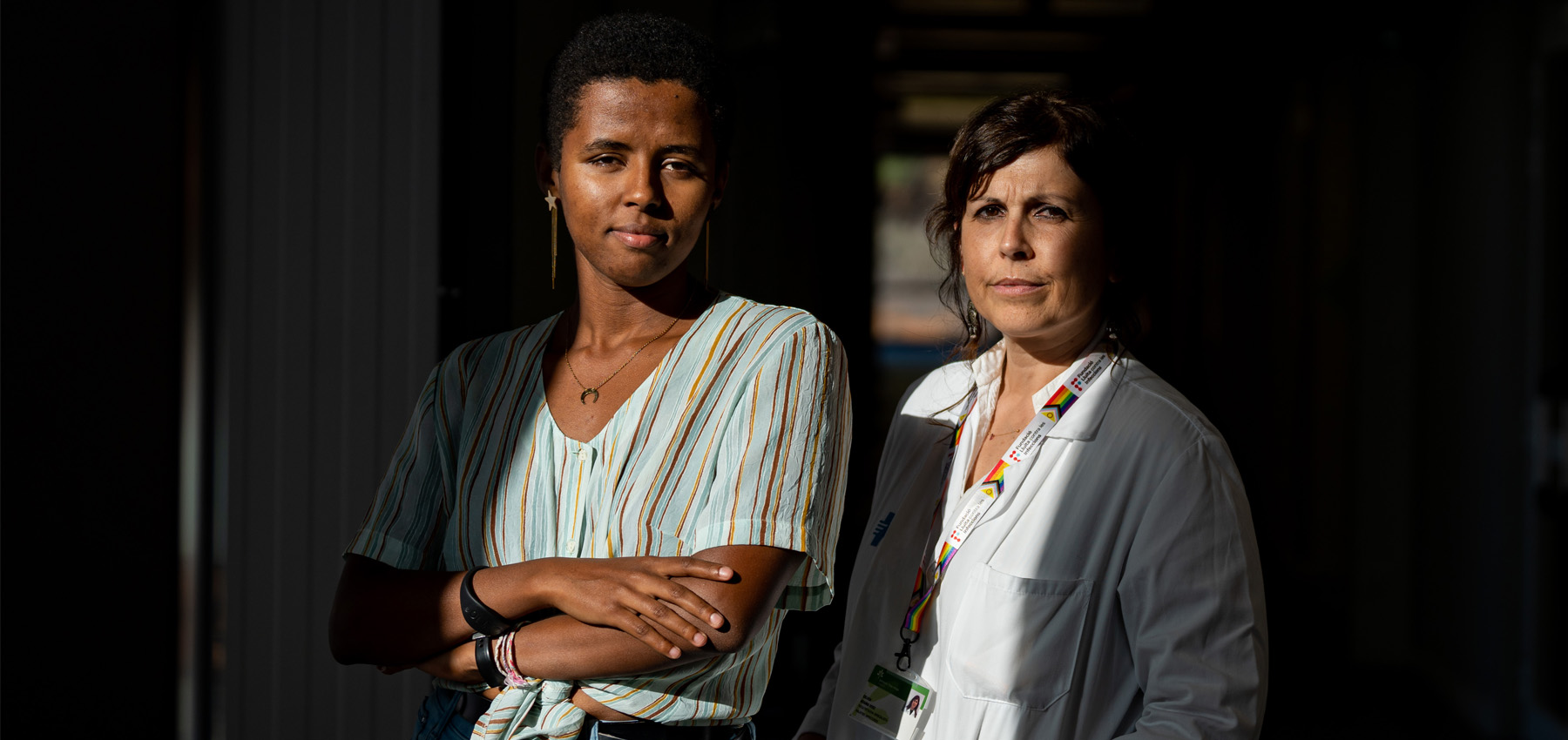6th International Health and One Health Conference: a global perspective to tackle emerging health challenges
19/12/2025
Dr. Silvia Roure, head of the Foundation’s International Health and Neglected Diseases section, and one of her patients, Emebet, have a challenge and very little time. They need to raise €16,000 to detect, treat and cure 200 people with schistosomiasis, a forgotten and neglected disease that, if not diagnosed in time, can cause very serious problems.
Schistosomiasis, an invisible infection
Schistosomiasis is a parasitic infection imported mainly from countries in sub-Saharan Africa, so it is not common for it to be transmitted outside that area. Infection occurs during contact with infected water in rivers in countries where infection is endemic, often through fishing, swimming, bathing or washing clothes. Therefore, this infection affects the native population of endemic countries, but also international travelers who visit them.
Infection occurs when parasite larvae penetrate a person’s skin during contact with infected water. This parasite enters the body through the skin and can live for years, creating serious problems that worsen the quality of life of the infected person.
Infection occurs when parasite larvae penetrate a person’s skin during contact with infected water. This parasite enters the body through the skin and can live for years, creating serious problems that worsen the quality of life of the infected person.
Symptoms of schistosomiasis
Initially, the symptoms of schistosomiasis may go unnoticed, but the parasite can remain in the body for years and cause health problems for the infected person, such as:
– Urine infections
– Abdominal or pelvic pain
– Dysuria
– Diarrhea
– Renal insufficiency
– Bladder cancer
– Hepatic cirrhosis
– Infertility
– Stroke
In the case of women, it causes non-specific gynecological symptoms that can lead to a wrong diagnostic orientation and cause patients to have to repeatedly visit the health system without finding an answer to their discomfort.
Easy Screening and Effective Treatment
Schistosomiasis can be diagnosed with a blood test and is treated effectively and inexpensively with praziquantel, a medication that is dispensed in two days with 90% effectiveness.
The history of Emebet
Since she was little, Emebet had unbearable stomach pains that didn’t let her get out of bed. She went to many doctors, but they couldn’t find what she had. At the age of 24, she met Dr. Silvia Roure, she tested her for schistosomiasis and they came out positive.
After treatment, Ella Emebet has had no symptoms again. Like her, many people live with the disease and do not know it. Help us change their lives.
Join the Giving Tuesday solidarity movement and help us make this challenge possible.
You can change the lives of 200 people with schistosomiasis.
19/12/2025
15/04/2025
04/12/2024

Share